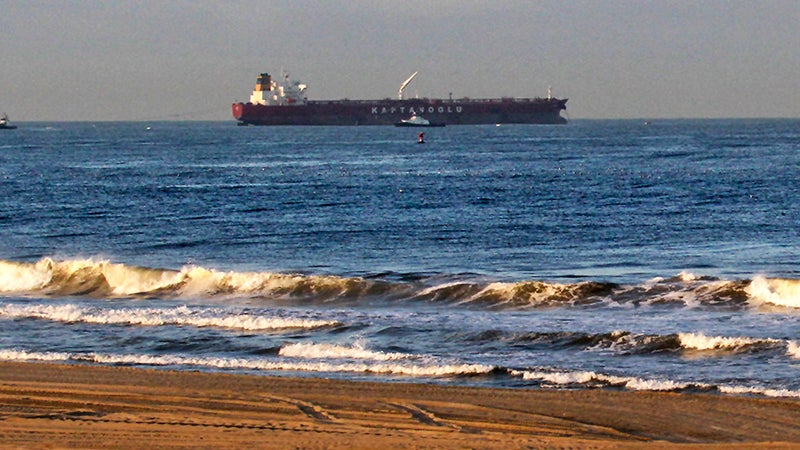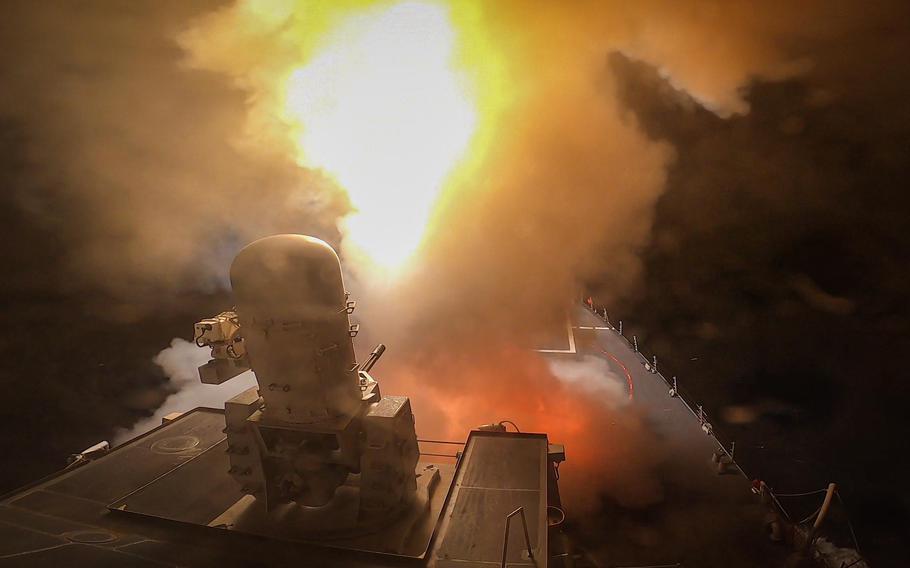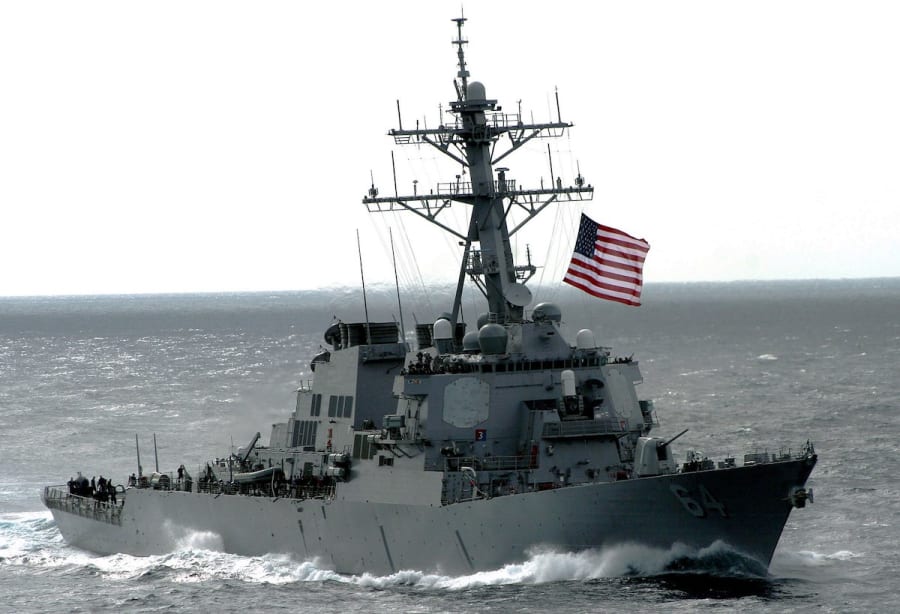Implications Of Isreal Gaza War Spills To Red Sea, Increased Attacks Lead To Navigational Disruptions, Global Trade; US And Allies To Establish Military Task Force To Safeguard Red Sea Routes
The Red Sea, a vital maritime route for global trade, is currently facing significant disruptions due to attacks on commercial ships by Houthi militias. This situation has prompted multinational energy companies, such as Equinor, to reroute their vessels and BP to temporarily halt all shipments, impacting the transportation of crucial resources like crude oil and liquefied petroleum gas (LPG). In addition, the conflict has led to a reevaluation of connections with Israel by major shipping firms, exemplified by Evergreen Marine's decision to temporarily cease accepting Israeli cargo. The escalating threat to maritime trade has prompted discussions among the United States and its allies to establish a task force aimed at safeguarding Red Sea routes. Meanwhile, this disruption will lead to an increase in oil prices and leading consumer goods.

Oil giant BP has decided to temporarily halt all shipments of oil through the Red Sea in response to recent attacks on vessels by Houthi rebels.
The company attributes this decision to the “deteriorating security situation” in the region, as the Iran-backed Houthis specifically target ships they believe are en route to Israel. In line, numerous freight firms have also suspended their journeys in light of the ongoing attacks.
BP has indicated that it will keep its “precautionary pause” under ongoing review while closely monitoring the situation in the region.
The Price Of War
Analysts have suggested that if other major oil firms follow suit, there could be a potential rise in oil prices; on Monday, international benchmark Brent experienced a 2.6% increase, reaching almost $79 per barrel.
S&P Global Market Intelligence analysis reveals that nearly 15% of goods imported into Europe, the Middle East, and North Africa are shipped from Asia and the Gulf by sea, including 21.5% of refined oil and over 13% of crude oil.
Consumer goods are expected to be the most affected, although current disruptions are occurring during the off-peak shipping season, according to Chris Rogers from S&P Global Market Intelligence.
On Monday, Evergreen Line, one of the world’s largest shipping firms, announced that it would no longer carry Israeli cargo via the Red Sea, citing concerns for the safety of ships and crew.
Hence, Evergreen Line has decided to temporarily stop accepting Israeli cargo with immediate effect and has instructed its container ships to suspend navigation through the Red Sea until further notice.
The Red Sea Attacks
The Houthi rebels are focusing their attacks on ships travelling through the Bab al-Mandab Strait, also known as the Gate of Tears, a perilous channel that is 20 miles (32km) wide.
The rebels have expressed their support for Hamas and declared their intent to target ships heading to Israel, utilizing drones and rockets against foreign-owned vessels.
As a result, ships are now compelled to take a longer route around southern Africa, potentially extending the journey by about 10 days and incurring millions of dollars in costs.
Following the October 7 attacks by Hamas, Israel launched a military campaign in Gaza, resulting in 1,200 casualties. The Hamas-run health ministry in Gaza reports over 18,700 deaths since the beginning of the conflict; however, it remains unclear if all the ships attacked by Houthi rebels were en route to Israel.
In the latest reported assault, the MT Swan Atlantic was hit by an “unidentified object” in the Red Sea off Yemen on Monday, despite no links to Israel.
Inventor Chemical Tankers clarified that there is no Israeli connection in the ownership (Norwegian), technical management (Singapore), or any parts of the logistical chain for the cargo transported.

Recent intensified attacks on ships have prompted shipping firms to suspend travel through the strait between Yemen, Djibouti, Eritrea, and the Arabian Peninsula. This route is crucial for ships reaching the Suez Canal from the south.
Major shipping companies, including Maersk and Mediterranean Shipping Company (MSC), have expressed concern and diverted their ships from the affected area.
CMA-CGM, Euronav, Frontline, and Inventor Chemical Tankers have also halted shipments through the region while Germany’s Hapag-Lloyd is rerouting several ships via the Cape of Good Hope until the Red Sea passage is deemed safe.
Evergreen Line announced that container ships on longer journeys between Asia and the Mediterranean, Europe, or the east coast of the US will be diverted around the Cape of Good Hope.

The Effect
The situation has led to delays in cargo transportation, with shipping firms informing customers that war-risk insurance costs are rising exponentially, potentially leading to higher prices for customers.
The industry anticipates additional costs, including higher insurance premiums; despite challenges, experts believe the industry is better equipped to handle crises compared to the 2021 Suez Canal blockage, with COVID-related supply chain issues having eased up.
The Rebel Attacks
Yemen’s Houthi militias have targeted commercial ships in the Red Sea, claiming solidarity with Palestinians.
The US and UK report shooting down 15 attack drones over the Red Sea amid concerns that Israel’s conflict with Gaza may escalate in the region.
The US Central Command revealed that Houthi militias attacked two commercial vessels in the southern Red Sea on Monday, including the chemical/oil tanker motor vessel Swan Atlantic, which was hit by a drone and an anti-ship ballistic missile.
The Houthi group claims these attacks are in response to Israel’s actions in Gaza.
During a visit to Israel, U.S. Defense Secretary Lloyd Austin stated that Washington is building a coalition to address the Houthi threat, with virtual talks scheduled for defence ministers from the region and beyond.
The attacks are disrupting maritime trade, leading freight firms to reroute around the Cape of Good Hope to avoid the Suez Canal.
About 15% of global shipping traffic passes through the Suez Canal, and major freight firms, including MSC, are sailing around Africa instead, incurring additional costs and delays.
The conflict between Israel and Hamas, ongoing since October 7, has regional implications, and the Red Sea attacks highlight the ability of Middle Eastern paramilitary forces backed by Iran to impact global trade.
Companies diverting vessels control approximately half of the global container shipping market, contributing to rising war risk insurance premiums and increased shipping rates due to longer travel distances.

The International Military Coalition
The shipping assaults have raised concerns about international trade security, leading the United States and its allies to discuss forming a task force to protect Red Sea routes.
Tehran, a staunch adversary of both the U.S. and Israel, cautioned against such a move; however, during his visit to Israel, U.S. Defence Secretary Austin emphasized the leadership of a multinational maritime task force in the Red Sea to uphold the principle of freedom of navigation.
Norway expressed readiness on Monday to contribute up to 10 naval officers to the proposed U.S.-led task force. Italy is considering joining, and Denmark’s Defence Minister Troels Lund Paulsen confirmed Copenhagen’s willingness to “participate” in providing security, without providing details.
Despite Houthi claims of targeting only Israeli-affiliated vessels, observers note that their attacks include ships not associated with Israel. Analysts suggest that the Houthi group, backed by Iran, aims to exert geopolitical influence in the region, in addition to influencing Israel’s conflict in Gaza.
The Last Bit, The disruptions in the Red Sea, fueled by Houthi attacks and their geopolitical implications, pose a serious threat to international trade.
The formation of a multinational maritime task force reflects the urgency to protect the freedom of navigation in this critical waterway.
As major energy and shipping companies adjust their routes, delays and potential price hikes for consumer goods loom on the horizon.




